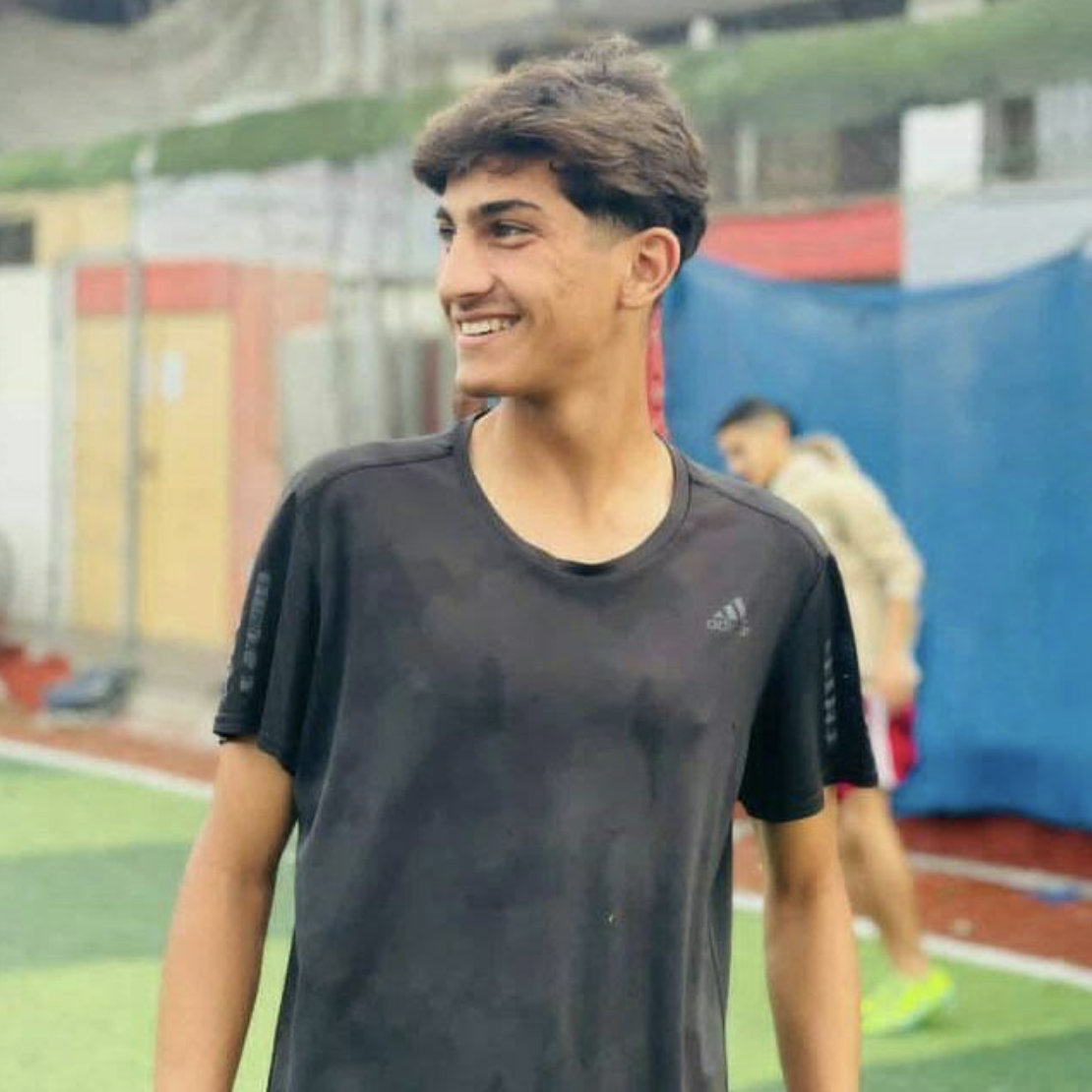“I just wanted flour for my family”
Mahmoud Al-Kafarna, 24, before the genocide started in Gaza. Photo provided to the author
Mahmoud Al-Kafarna is a 24-year-old multimedia graduate from University College of Applied Sciences, Gaza. Before the genocide, he lived in Beit Hanoun city, northeast of the Gaza Strip, with his parents and five of his siblings, of which he is the eldest.
He and his family have since been displaced and live in a tent on Al-Jalaa Street in central Gaza, sharing eight square meters of space.
Currently, Al-Kafarna can’t move around much. The injuries on his leg are still fresh from that day last month he sought food at a distribution point run by the Israeli military. He shared these details about what happened on July 3, 2025 with Palestine Nexus:
“My friends and I left our tent early on July 3, hoping to receive some flour being distributed by the Israeli army in the Nabulsi area (southwest of Gaza City). But it wasn’t until 3 a.m. the next day that aid trucks finally began entering the area. My friends and I waited there the entire day, hungry.”
Al-Kafarna walked there with his friends and arrived at the distribution site at three in the morning. When they got there, they found the place crowded. But instead of relief, chaos broke out.
“Suddenly, the Israeli soldiers opened heavy fire on us. People ran in every direction, but I couldn’t give up. I needed that flour.”
He managed to grab onto the side of a speeding Israeli cargo trailer, clutching a rope with one hand while his legs banged against the wheels.
“I tried to place my feet on the edge of the sidewalk to avoid injury, but the trailer moved too fast. I was terrified. I thought my legs would be crushed, so I let go and fell onto the ground.”
Before he could catch his breath, another trailer was upon him. A group of young men dragged him to safety in time and stopped him from getting hit. But his desperation for flour outweighed his pain.
“I saw the final trailer coming. I pushed forward, fighting my way through the crowd. I managed to grab a sack of flour, but the trailer ran over my legs.”
Still, he dragged the heavy sack, weighing about 25 kilograms, to the side of the road before collapsing. He could feel the pain surge through his body like fire.
“It felt like hell inside me,” he said. “Then I heard the shooting start again.”
Fearing for his life, Al-Kafarna handed the flour sack to two strangers and begged them to deliver it to the street where his family was waiting. He then began walking to Al-Quds Hospital to seek treatment for his leg, a two-kilometer journey alone, on a limping foot.
At the hospital, he was given first aid treatment, and eventually transferred to Al-Shifa Hospital. “There were no proper treatments available. The doctors just wrapped my legs in gauze to stop my clothes from sticking to the wounds,” Al-Kafarna said.
At Al-Shifa Hospital, doctors found partial injuries to his legs, arms, and ribs. He had to get four stitches in his abdomen and underwent surgery to treat internal injuries.
Al-Kafarna knew about the stories of horror at aid distribution sites, but his family hadn’t had any bread in a week, and the journey to get flour became more urgent than ever.
While the IPC has only recently declared famine in Gaza, food insecurity and starvation has been a reality for Gazans since late last year.
Many like Al-Kafarna have been facing starvation conditions and have been forced to get food from the so-called aid distribution sites, like the US and Israeli-based Gaza Humanitarian Foundation and others run by the Israeli military.
OHCHR reported that over 1,300 Palestinians have been killed while seeking food in the vicinity of the Gaza Humanitarian Foundation sites and along the routes of food convoys. Most of the killing has been committed by Israeli forces.
Yet, with little-to-no-food supplies being let into the enclave and starvation causing severe malnutrition in children and in adults, people in Gaza risk their lives every day for a sack of flour.
Recovering from his injuries in his tent, Al-Kafarna said he would make the journey again if he had to. “I’ll go again, with all my strength. We had no flour. My family hadn’t tasted bread in days. What choice did I have?”
Subscribe to the Palestine Nexus newsletter:


